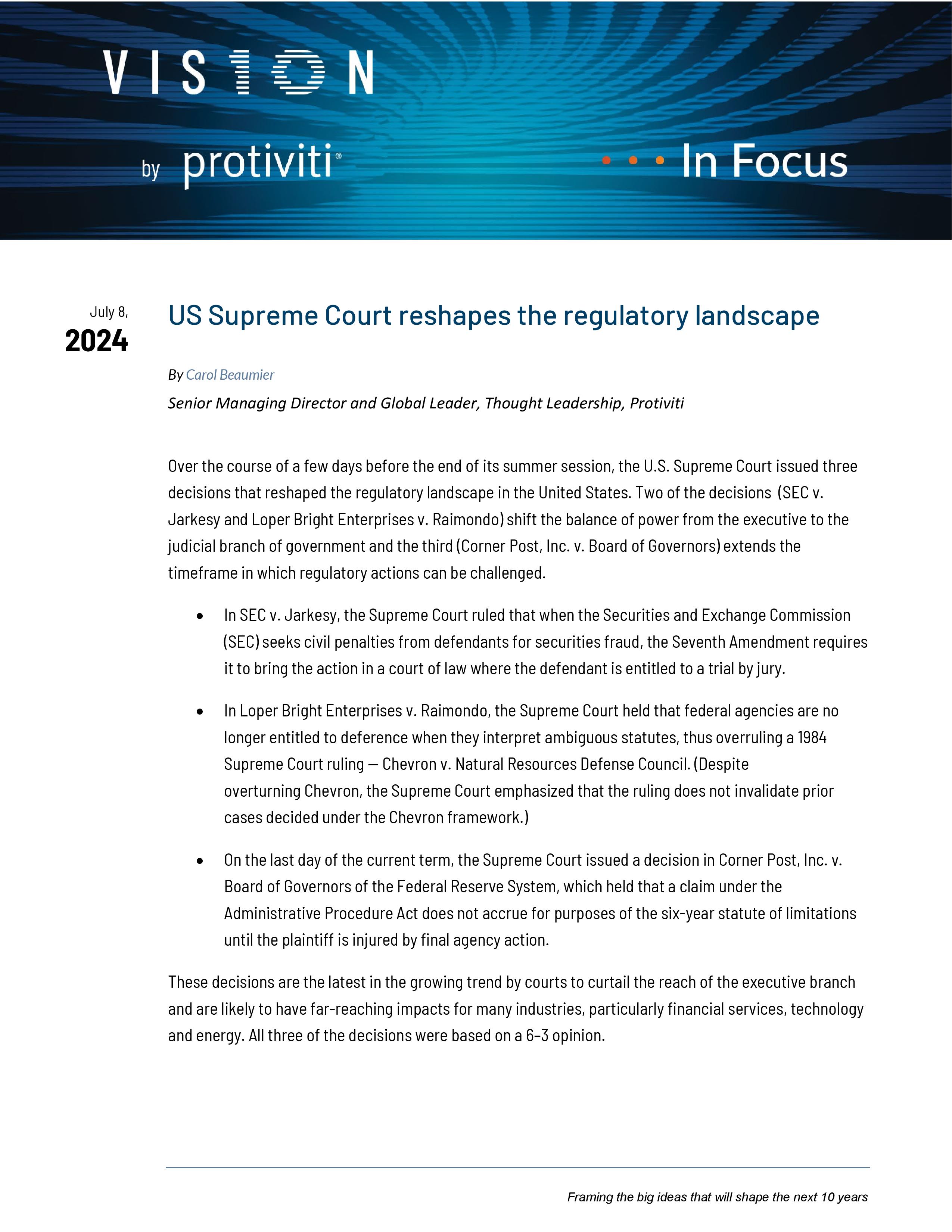U.S. Supreme Court Reshapes the Regulatory Landscape

Unpacking the Supreme Court's Landmark Decisions and Their Impact on Regulatory Practices
The U.S. Supreme Court has recently issued three significant rulings that have reshaped the nation's regulatory landscape. These decisions, which came in just before the end of its summer session, are SEC v. Jarkesy, Loper Bright Enterprises v. Raimondo, and Corner Post, Inc. v. Board of Governors. The court determined in SEC v. Jarkesy that when the Securities and Exchange Commission (SEC) seeks civil penalties for securities fraud, it must do so in a court of law where the defendant is entitled to a trial by jury per the Seventh Amendment. In Loper Bright Enterprises v. Raimondo, it was ruled that federal agencies no longer have deference when interpreting ambiguous statutes.
The reactions to these rulings varied significantly among different stakeholders. The U.S Chamber of Commerce supports the overruling of Chevron as it helps create a more predictable and stable regulatory environment for businesses to operate in without having to deal with fluctuating regulations with each presidential administration change. On the other hand, U.S Senator Elizabeth Warren criticized this decision along with Corner Post Inc v Board of Governors as an attack on constitutional separation of powers.
Furthermore, these Supreme Court decisions imply changes in rule-making practices and how they are subsequently interpreted regardless of different viewpoints on their merits or effects. This could lead to stricter adherence to statutory language during rule promulgation necessitating agencies' greater justification for their positions which may lead to an extended timeline for rulemaking and increased challenges to regulatory interpretations through litigation.
Download the full article to learn more about Protiviti’s advice regarding these historic decisions.